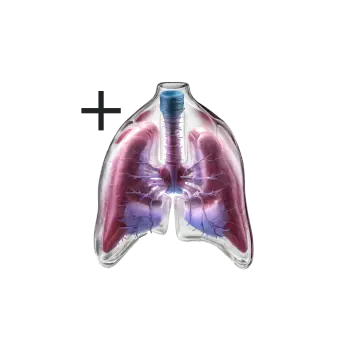What is TRAK (thyroid-stimulating hormone receptor antibodies)?
TRAK, or thyroid-stimulating hormone receptor antibodies, are antibodies that are formed in the body against the receptors for TSH (thyroid-stimulating hormone) found on the thyroid cells. TSH is a hormone produced by the pituitary gland and plays an important role in the body's hormone system, it stimulates the thyroid gland to produce the hormones thyroxine (T4) and triiodothyronine (T3) which are important for regulating the body's energy balance, metabolism and heat regulation.
Why analyse TRAK
TRAK can be analyzed to gain a better understanding of what causes thyroid problems and to diagnose and monitor autoimmune diseases such as hyperthyroidism, hypothyroidism, Graves' disease (a form of hyperthyroidism) and Hashimoto's disease - a disease that can lead to hypothyroidism.
What can cause a high TRAK value?
When TRAK is present in high levels, it can cause an autoimmune reaction where the body's immune system attacks and damages the thyroid cells, which can lead to an overactive thyroid (Graves disease) or underactive thyroid (Hashimoto's disease) depending on how the antibodies affect the thyroid.
What can cause a low TRAK value?
A low value of TRAK (thyroid-stimulating hormone receptor antibodies) may mean that there is no active autoimmune disease in the thyroid gland. It can also mean that the disease is in an early phase or does not affect the thyroid gland at the moment. Low levels of TRAK are usually normal and not associated with any specific symptoms or health problems. However, it is important to note that this is general information and it is important to consult a doctor for a complete evaluation and diagnosis of thyroid problems. It is also important to note that a low TRAK value does not always mean that one does not have or will never develop an autoimmune thyroid disease.





















